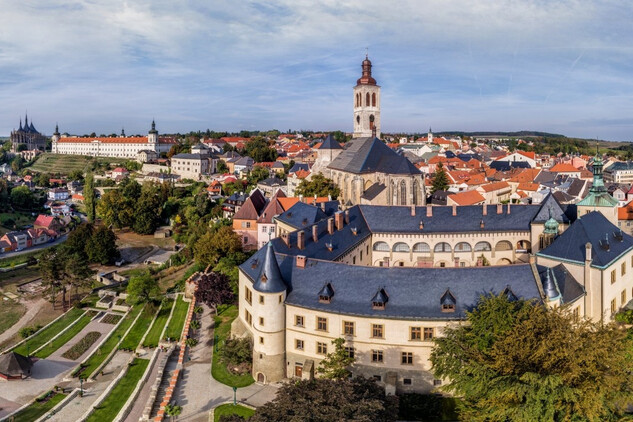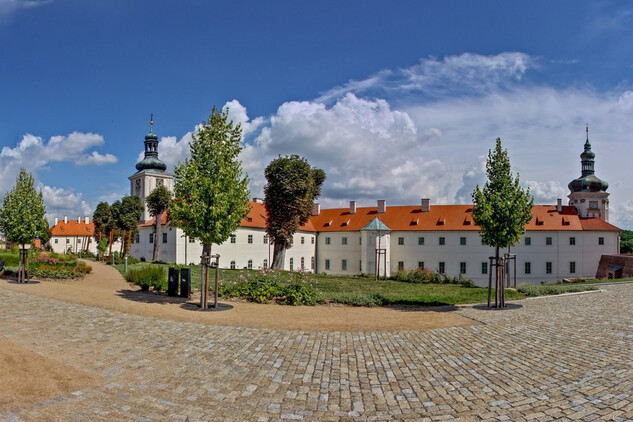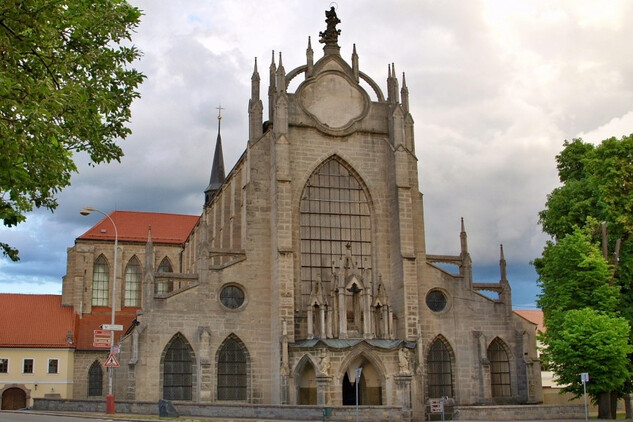Kutná Hora: Historical Town Centre
Ever since the end of the 13th century the history of Kutná Hora has been inseparably linked to the mining of silver ore. The historical centre is an architectural jewel of European importance, and the late gothic Church of St. Barbora and the Cathedral of Our Lady in Sedlec, rebuilt in the baroque gothic style, create a notional entrance gateway to the royal mining city.
Kutná Hora is, as its name suggests, associated with the mining (kutání in Czech) of silver. In 1142 the first Cistercian monastery in the Czech lands was established in the nearby village of Sedlec and at the end of the 13th century the original mining settlement of Cuthna antiqua – Old Kutna - soon became a wealthy royal city. In 1300 King Václav II issued the mining legislation "Ius regale montanorum" and in the same year he initiated a coinage reform. One century later another king, Václav IV, issued the Kutná Hora Decree, which amended the proportion of votes at Prague University in favour of the Czechs. Kutná Hora is therefore rightly considered to be the treasure-house of the land whose wealth gave strength to the expansion of the Kingdom of Bohemia. Its history and uniqueness were recognised in 1995 when the city was inscribed in the UNESCO World Cultural and Heritage List.
World Heritage List photo gallery WHL











